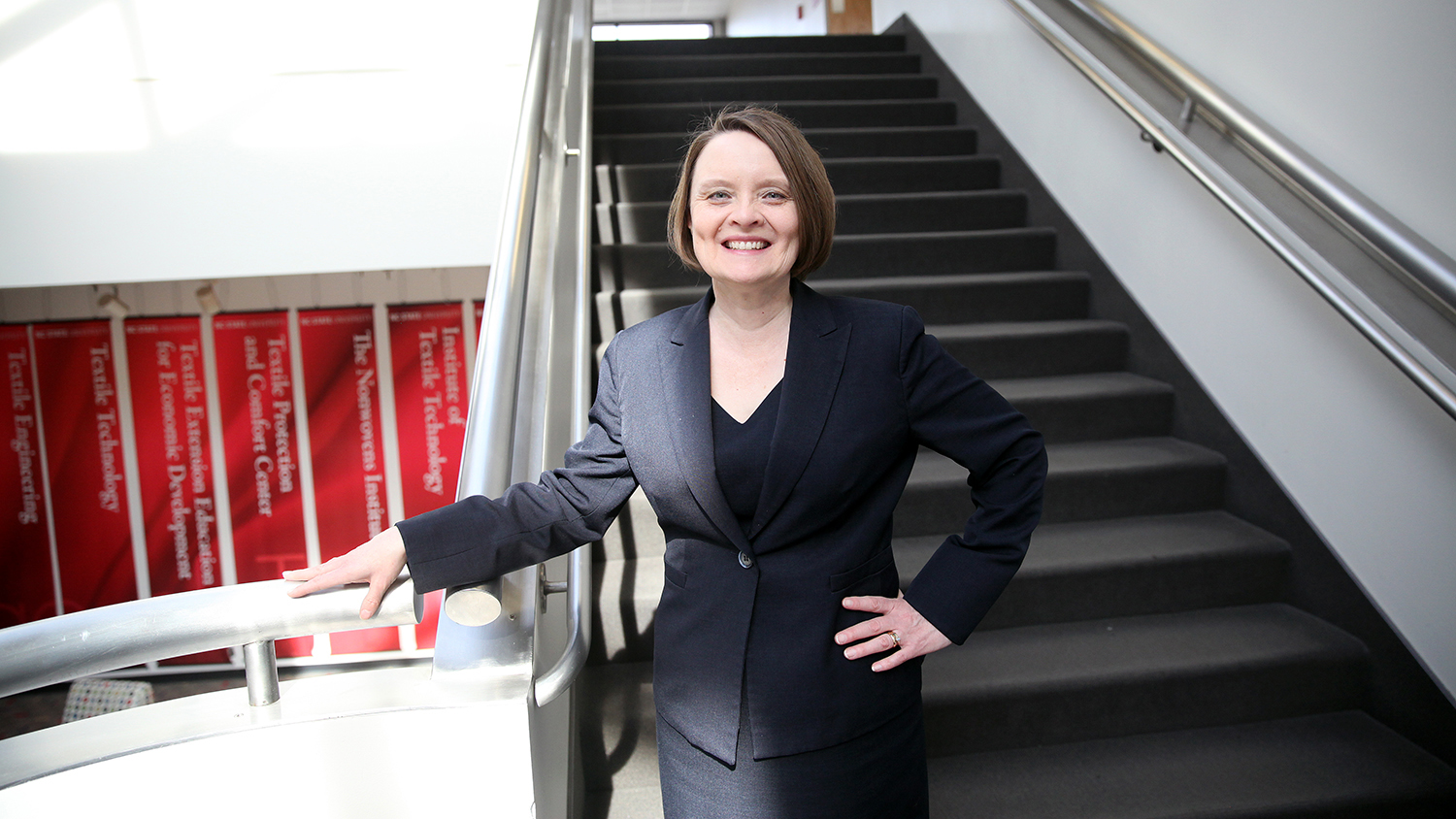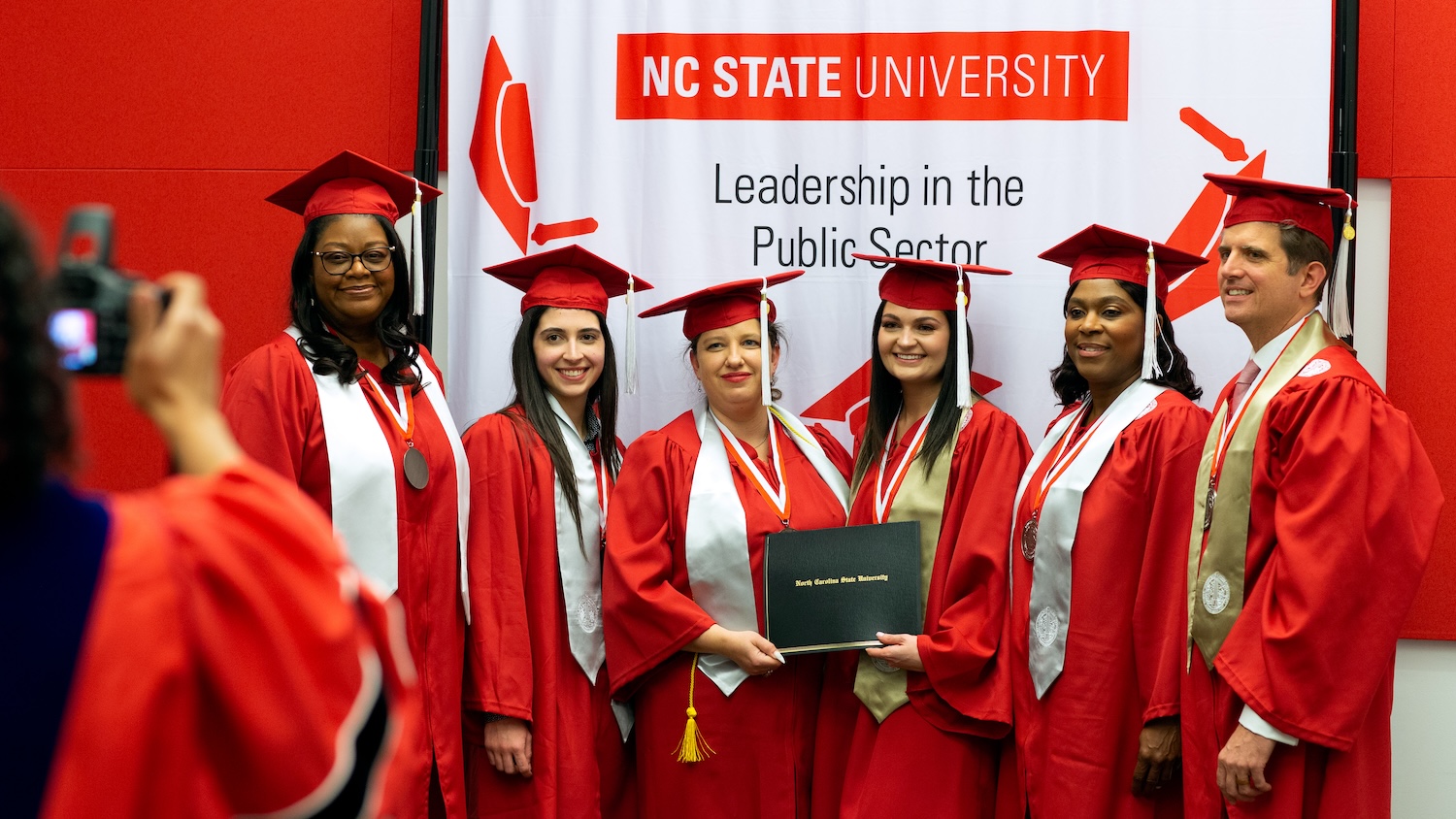Textiles Associate Professor Combines Passion for Applied Statistics and Teaching to Bond with Online Students

At NC State’s College of Textiles, you can find a number of individuals from various backgrounds, including textile chemistry to nonwovens as well as fashion design to marketing and brand management. Textiles reach multiple industries, requiring a well-versed group of experts in a number of different fields. One of those experts is Associate Professor Lori Rothenberg.
Rothenberg has always had a love for education. As an undergraduate, she was interested in science and math education. In graduate school, she had the opportunity to study cognitive science while earning a Ph.D. in educational psychology from the University of North Carolina at Chapel Hill. Her original concentration at UNC was quantitative methods, which later evolved into applied statistics.
“That’s been the theme throughout my career, applied statistics,” Rothenberg said.
In 1999, Rothenberg’s career landed her at SAS in Cary, North Carolina.
“At SAS, I developed and delivered the first live web courses. We did it at a time when no one else was doing it,” Rothenberg explained. “SAS was leading the way on that. Now, their online synchronous courses are actually their largest training center.”
Rothenberg said a lot of research was involved to find the right way to develop and deliver the synchronous courses. That knowledge has since carried over into her current role with the College of Textiles. She’s been with the college since 2007, starting with the Zeis Textiles Extension. Now she’s a full-time associate professor in textile brand management and marketing.
Part of her job is making sure her courses meet the needs of Online and Distance Education students.
“We have students that are employed around the world. And there’s not another way for them to go ahead and get degrees and specifically the Master of Textiles non-thesis degree,” Rothenberg said.
She adds that the non-thesis master’s degree is very attractive to people in industry. Providing courses and programs online is a way to deliver Textiles’ programs to those who may not be able to physically be on campus.
“I have people that travel a lot and students can’t do that in the traditional program, so this allows them a little flexibility,” Rothenberg explained.
She also believes it’s crucial to encompass interactive platforms within Online and Distance Education courses. And she’s specifically done that with TTM 581: Global Textile and Apparel Business Dynamics.
“Initially we just did classroom capture,” Rothenberg said. Since the first course, she’s had more time to make changes and add interactive elements.
“I made slides and recordings that made better sense to the online audience,” Rothenberg said. She started to incorporate forums and discussions which helped to increase the overall communication within the course.
“I tried to create an environment where everybody’s comfortable communicating on the forum,” Rothenberg said. She adds that some students have been able to build strong friendships through classroom participation, which Rothenberg can’t encourage enough.
“Participate. Talk with other students on the forum or whatever the mechanism is for communicating because you’re connecting with people who are already in the field in the workforce and those are people you can use for resources,” Rothenberg said.
- Categories:


